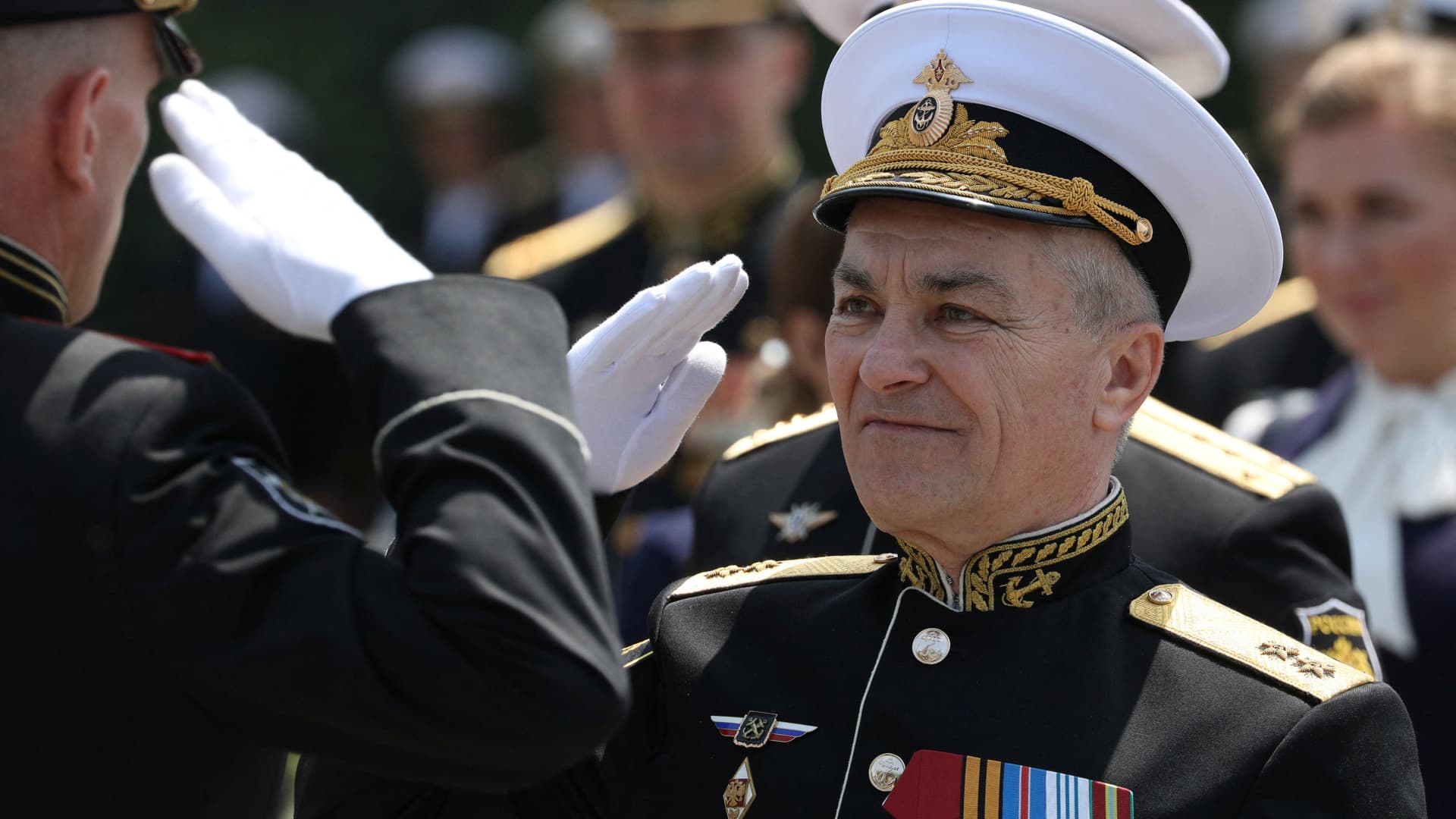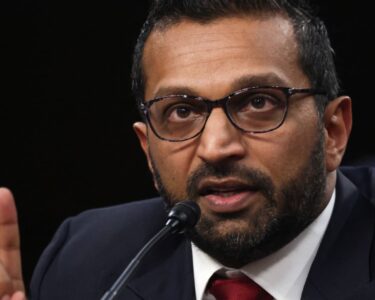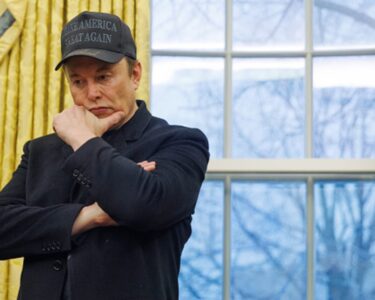This was CNBC’s live blog tracking developments on the war in Ukraine.
There was confusion Tuesday when the commander of Russia’s Black Sea Fleet, who Ukraine claimed it had killed in a missile strike on the Russian naval headquarters in Crimea last Friday, has been seen attending a video conference with Russian defense officials Tuesday.
Ukraine said Tuesday that Admiral Viktor Sokolov’s death had not been confirmed, despite saying Monday that the commander and 33 other naval officers had been killed in a strike on the naval base in Sevastopol, in Russian-occupied Crimea on Friday.
Russian news agency Tass on Tuesday showed a video on its news website in which Sokolov was seen taking part in a video conference with Defense Minister Sergei Shoigu and other officials. It’s uncertain when the footage, which was distributed by Russia’s defense ministry, was filmed.
Earlier, the Kremlin said it had no comment on Ukraine’s claim that Sokolov had been killed in the attack.
Belarus again ruled out participating in the war in Ukraine alongside Russia, with its top diplomat insisting that a political and diplomatic solution is the only way to end the conflict.
Belarusian Foreign Minister Sergei Aleynik was asked by the Associated Press whether he sees a situation in which Belarus could take part in the war.
“My answer is no,” Aleynik said, adding that Russia’s longstanding ally Belarus has always supported peace in its neighboring country and will continue “to do everything in our power” to achieve it.
He told AP that no one knows how long the war will last, but “we all understand that there is no alternative to the political and diplomatic solution for this conflict.”
Aleynik noted that Minsk had held three rounds of negotiations between the Russian and Ukrainian delegations last year “and they began to develop some elements of a potential peace agreement.”
But he blamed Ukraine and other countries “indirectly involved in the conflict” for the failure of those negotiations, and said Belarus “will continue to make peace efforts.”
Belarusian President Alexander Lukashenko is known as “Europe’s last dictator,” having ruled in Belarus for nearly three decades. He is a firm, if subservient, ally of Russian President Vladimir Putin, having received political and financial support from Moscow over the years.
Nonetheless, Belarus has so far resisted actively entering the war alongside Russia, although it has provided logistical support and allowed Russian forces to launch their invasion on northern Ukraine from its territory. It has also allowed Russia to station tactical nuclear missiles in Belarus.
When asked whether he foresees a situation in which those weapons could be used, Aleynik told the AP that he didn’t see “such an option because it is an instrument of defense primarily.”
But if Belarus were invaded, “I will not exclude any instruments to be used to defend the sovereignty and territorial integrity of our country,” he said.
— Holly Ellyatt
Russia’s former president Dmitry Medvedev said Tuesday that he had visited troops near the frontline in Ukraine’s eastern Donetsk region, upon orders from President Vladimir Putin, according to AFP.
“On the instructions of the president, I visited a firing range near the contact line on the territory of the Donetsk People’s Republic,” said Medvedev, who also formerly served as prime minister.
“The servicemen are demonstrating excellent combat qualities of will, firmness and a general attitude to victory,” Medvedev, who now serves as deputy chairman of the Kremlin’s Security Council, said in a video posted on social media.
He added that “over 325,000 people” had been recruited into the Russian Armed Forces since the start of the year — up from the figure of 280,000 he gave at the start of the month.
CNBC was unable to independently verify these numbers.
— Karen Gilchrist
Ukraine’s Special Operations Forces said in a statement Tuesday that they had not confirmed the death of the commander of Russia’s Black Sea Fleet, Admiral Viktor Sokolov.
Ukraine previously said Monday that Sokolov and 33 other naval officers had been killed in a strike on the naval base in Sevastopol, in Russian-occupied Crimea, on Friday.
But Russian news agency Tass showed a video on its news website in which Sokolov was seen taking part in a video conference with Defense Minister Sergei Shoigu and other officials.
CNBC was unable to independently verify when the footage, which was distributed by Russia’s defense ministry, was filmed.
— Karen Gilchrist
Russian Defense Minister Sergei Shoigu announced Tuesday plans to increase the supply of modern weapons to the Russian army, according to comments reported by Russian news agency Interfax.
“We continue to increase the combat power of the armed forces, including through the supply of modern weapons and improving the training of troops, taking into account the experience of a special military operation,” Shoigu reportedly said at the board of the Russian Ministry of Defense.
Shoigu said the plans were designed to be implemented by 2025.
Russian forces in the Southern Military District will receive 5,500 units of modern military equipment this year, he said, “and the commissioning of more than five hundred infrastructure facilities will be completed,” he said without giving further details.
He also said that since the beginning of the year, the number of officers in the district has increased by 11,000 people, and contract military personnel by 30,000 people. Shoigu said combat training and training grounds were being modernized.
In addition, Shoigu said that new formations of the Airborne Forces are being created in Russia and their strike capabilities are being increased.
“We continue to equip the Airborne Forces with the latest weapons. Since the beginning of the year, formations and military units have received more than two thousand pieces of equipment and five and a half thousand sets of landing equipment and parachute systems.”
Shoigu said that the plans would allow the Airborne Forces to increase their combat potential by 1.3 times by the end of the year, while its firepower would increase by 20%.
— Holly Ellyatt
The Kremlin said on Tuesday that U.S. supplies of long-range ATACMS missiles and Abrams tanks to Ukraine would not change the situation on the battlefield.
Asked about the issue at a regular news briefing, Kremlin spokesman Dmitry Peskov said the Russian armed forces were constantly adapting to the use of new types of weapons in what Moscow calls its special military operation (SVO) in Ukraine.
“All this can in no way affect the essence of the SVO and its outcome. There is no panacea and no one type of weapon that can change the balance of power on the battlefield,” he said.
Ukraine’s President Volodymyr Zelenskiy said on Tuesday that U.S.-made Abrams tanks had arrived in his country. The jet-powered tanks were a top demand of Kyiv until Washington finally offered more than 30 of them in January.
“Abrams tanks are serious weapons, but remember what the president said about other tanks made in another country,” Peskov said, referring to other Western tanks supplied to Kyiv, which include German-made Leopards and British Challengers.
“Well, these (Abrams) too will burn,” he said.
Kyiv has also repeatedly asked the Biden administration for Army Tactical Missile Systems (ATACMS) to help attack and disrupt supply lines, air bases and rail networks in Russian-occupied territory.
Last Friday, NBC News, citing U.S. officials, reported that President Joe Biden had informed Zelenskyy that Washington would also provide Kyiv with ATACMS long-range missiles.
The White House and Pentagon declined to comment on the NBC report. The Pentagon also declined to say whether any promises of ATACMS were given to Zelenskyy during his meetings last Thursday at the Pentagon.
“The Americans continue to increase their… direct involvement in this conflict, but of course, every time our military improves its skills and technical capabilities to counter these missiles,” Peskov said.
— Reuters
In recent days, Ukraine has repeatedly targeted Russia’s Black Sea Fleet that’s based in Sevastopol in Russian-occupied Crimea, with its attack on the naval base last Friday causing significant damage to the fleet’s headquarters.
The U.K.’s Ministry of Defence noted in an intelligence update Tuesday that attacks in recent days “have been more damaging and more coordinated than thus far in the war.”
Posting on X, formerly known as Twitter, the U.K. said that while the “physical damage to the Black Sea Fleet is almost certainly severe but localised” it said “the fleet almost certainly remains capable of fulfilling its core wartime missions of cruise missile strikes and local security patrols.”
Nonetheless, the ministry noted that the Russian navy’s “ability to continue wider regional security patrols and enforce its de facto blockade of Ukrainian ports will be diminished.”
“It also likely has a degraded ability to defend its assets in port and to conduct routine maintenance,” it said.
“A dynamic, deep strike battle is underway in the Black Sea. This is likely forcing Russia into a reactive posture whilst demonstrating that Ukraine’s military can undermine the Kremlin’s symbolic and strategic power projection from its warm water port in occupied Sevastopol,” the ministry said.
— Holly Ellyatt
The commander of Russia’s Black Sea Fleet, who Ukraine claimed it had killed in a missile strike on the Russian naval headquarters in Crimea, has been seen attending a video conference with Russian defense officials Tuesday.
Ukraine said Monday that Admiral Viktor Sokolov, the commander of Russia’s Black Sea Fleet and 33 other naval officers had been killed in its strike on the naval base in Sevastopol, in Russian-occupied Crimea.
Russian news agency Tass showed the video on its news website, in which Sokolov is seen taking part in a video conference with Defense Minister Sergei Shoigu and officials. It’s uncertain when the footage, which was distributed by the defense ministry, was filmed.
At the time of the attack last Friday, Russia’s Defense Ministry said the historical building of the Black Sea Fleet headquarters had been damaged and said one serviceman was missing. It said Russian air defenses shot down five missiles.
Earlier, the Kremlin said it had no comment on Ukraine’s claim that Sokolov had been killed in the attack.
— Holly Ellyatt
Ukraine is trying to keep its international backers close as the spillover effects of the war with Russia — as well as the thorny issues of diplomatic gaffes, conflict fatigue and elections — threaten to upset its alliances and damage support for its cause.
Opinion polls in both Europe and the U.S. carried out this summer show there has been an overall decline in support for measures backing Ukraine, particularly when it comes to additional funding and the supply of military equipment.
“Partisan divides appear to be emerging in both Europe and the U.S. on supporting Ukraine,” geopolitical analysts at Teneo risk advisory noted Monday, adding that governments were mindful of prioritizing domestic politics and policies ahead of Ukraine, particularly as elections are on the horizon in a number of allied countries like Poland, Slovakia and the U.S.
Read more on the story here: Russia smells blood as Ukraine tries to stop war fatigue spreading among allies
Russia hit Ukrainian port infrastructure and grain storage facilities in an overnight drone strike on the grain exporting district of Izmail, Ukrainian officials said on Tuesday.
Oleh Kiper, governor of the southern Odesa region which includes the Danube River ports of Izmail and Reni, said a border checkpoint building, storage facilities and more than 30 trucks and cars were damaged, and that two people had been hurt.
The Ukrainian military said operations at an international checkpoint had been suspended and vehicles were temporarily being rerouted. Ukraine’s border service later identified the crossing point as Orlivka on the border with Romania.
The two-hour attack was the latest strike on Ukrainian grain and port facilities since July, when Russia quit a grain deal that had ensured safe Ukrainian shipments via the Black Sea to help combat a global food crisis.
Ukraine, a major global grain producer and exporter, has stepped up exports via the Danube since then.
“The enemy targeted the port and border infrastructure of the Danube,” the general prosecutor’s office said, publishing photos of wrecked grain silos and burning trucks. “Two truck drivers were injured as a result of the attack. Granaries, administrative buildings and freight vehicles were damaged.”
The military said 26 of the 38 Iranian-made attack drones launched by Russia at Ukraine overnight had been shot down.
It said that in addition to the Odesa region, the Mykolaiv region, Kherson and Kirovohrad regions had also come under fire.
— Reuters
Six people have died and another 10 injured in Russian shelling in the southern Ukrainian region of Kherson, according to the head of the Kherson regional military administration.
Posting on Telegram, Oleksandr Prokudin said Russian forces had launched 93 attacks, including the firing of 491 shells from mortars, artillery, tanks and drones, over the past 24 hours.
He said the Russian military targeted residential quarters in the region, including educational institutions and administrative buildings as well as a dormitory, a pharmacy, a food industry enterprise and a market in Kherson.
“As a result of Russian aggression, 6 people died, 10 more were injured,” he added. CNBC was unable to immediately verify the information in the post.
Russia denies that it targets civilian infrastructure, but residential buildings and energy infrastructure have been repeatedly hit over the course of the 19-month war.
— Holly Ellyatt
Russia has remained tight-lipped about Ukraine’s claim to have killed the commander of the Black Sea Fleet in a missile strike on its headquarters in Sevastopol, Crimea, last Friday.
The Russian Defense Ministry did not immediately respond when asked by CNBC to confirm or deny whether Admiral Viktor Sokolov, the commander of the Black Sea Fleet, had been killed. If proven, Sokolov’s killing would represent a severe blow to Russia’s naval leadership.
Ukraine’s special operations forces said on Telegram Monday that “after the strike on the headquarters of the Russian Black Sea Fleet, 34 officers died, including the commander of the Russian Black Sea Fleet. Another 105 occupiers were wounded. The headquarters building cannot be restored.”
It was not clear how Ukraine counted the Russian dead and wounded in the attack.
After the strike on Friday, Russia’s defense ministry said on Telegram that one serviceman was missing, revising an earlier statement that the man had been killed. It said its air defenses had downed five missiles, but acknowledged that “the historical headquarters building of the Black Sea Fleet was damaged.”
Ukraine has targeted Russian military bases in Crimea repeatedly in recent months, its strikes on the Russian navy headquarters on Friday being one of the most audacious attacks. It also attacked Russian military facilities near Sevastopol last Wednesday, Thursday and Saturday.
— Holly Ellyatt
The Biden administration slapped fresh trade curbs on 11 Chinese and five Russian companies Monday, targeting foreign actors seen as compromising national security and drawing Beijing’s ire.
The U.S. accused Hong Kong-based exporter Asia Pacific Links; three Finnish freight, warehousing, and logistics companies; three Russian entities and a German industrial equipment producer of being embroiled in a scheme to flout U.S. export curbs by supplying drone components to the previously blacklisted Special Technology Center in St. Petersburg, Russia.
For more, please read the full story.
— Clement Tan
Hungary is not in a hurry to ratify Sweden’s NATO accession, Prime Minister Viktor Orban told parliament on Monday, flagging a further delay in a process that has been stranded in parliament since July 2022.
“I wonder if there is something urgent that would force us to ratify Sweden’s NATO bid. I cannot see any such circumstance,” he said.
— Reuters
Ukraine claimed Monday that a strike it carried out on the headquarters of Russia’s Black Sea Fleet in Sevastopol in Russian-occupied Crimea killed 34 Russian officers, including the commander of the Russia’s prized Black Sea Fleet.
“Another 105 occupiers were wounded. The headquarters building cannot be restored,” Ukraine’s Special Operations Forces said on Telegram Monday.
It said that the number of fatalities had been so high “given that the Minsk large landing ship was supposed to go on combat duty the next day, the personnel were present at the ship. Irreversible losses amounted to 62 occupiers,” the post said.
CNBC was unable to immediately verify the information in the post and Russia has not responded to the latest claim by Ukraine.
Ukraine has targeted Russian military bases in Crimea repeatedly in recent months, its strikes on the Russian navy headquarters on Friday being one of the most audacious attacks. It also attacked Russian military facilities near Sevastopol last Wednesday, Thursday and on Saturday.
Russia’s defense ministry said one serviceman was missing after the attack, revising an earlier statement that the man had been killed. Air defenses had downed a total of five missiles, the ministry said.
— Holly Ellyatt
Ukraine’s defense forces said they see a large-scale attack on the port of Odesa as revenge for Ukraine’s recent attack on the Russian naval headquarters in Crimea last Friday.
Russian missiles struck a hotel in Odesa last night,” Ukraine’s defense forces said on X, formerly known as Twitter.
“A pathetic attempt at retaliation for our successful hit on the Russian Navy HQ in Sevastopol,” the tweet added.
Odesa suffered what officials called “significant damage” in a large-scale Russian attack overnight.
Ukraine’s southern defense forces said 19 Shahed-136/131 type attacking drones, 12 Kalibr missiles and two Onyx supersonic missiles were used in the attack on Odesa. It said its air defense forces had shot down 19 drones and 11 Kalibr missiles but port infrastructure was hit and granaries destroyed.
The attack came after two days of attacks on Russian-occupied Crimea. Ukraine hit the headquarters of Russia’s Black Sea Fleet in Sevastopol on Friday and then launched a missile attack on the city Saturday.
— Holly Ellyatt
Poland’s president appeared to soften Warsaw’s recent rhetoric toward Ukraine after tensions rose in recent weeks between the allies and neighbors, particularly over grain imports.
“We need to get our emotions under control, because let’s remember who will benefit most if the paths of Poland and Ukraine diverge. The consequences could be tragic,” Polish President Andrzej Duda told a Polish newspaper Sunday.
Duda’s comments come after Ukrainian President Volodymyr Zelenskyy appeared to suggest, when addressing the U.N. General Assembly last week in New York, that some of Ukraine’s allies had feigned solidarity with Kyiv.
That comment appeared to prompt Poland’s prime minister to state that Poland would no longer supply Kyiv with weapons, escalating tensions further.
Poland has been one of Ukraine’s staunchest supporters in the war, but tensions have grown recently over Ukraine’s agricultural exports that have been transported via eastern Europe, with local farmers saying their own livelihoods have been affected by a glut of cheaper imports.
In an interview with a Polish newspaper on Sunday, Duda noted that Zelenskyy’s comments at the U.N. General Assembly could have been down to stress.
“Let’s not forget that Zelenskyy is under enormous pressure,” he told Polish newspaper Super Express. “He is sending people to the front, often to their deaths.”
Referring to defense spending, he said new equipment “must serve to strengthen the Polish army,” before more can be sent to Ukraine. “We are not spending billions for us to suddenly give it away,” he said.
“But that doesn’t mean that we won’t hand over armaments to Ukraine at all,” he said, adding that “when the old equipment is replaced by modern equipment, I don’t see a problem with sending that [old equipment] to the Ukrainians.”
Zelenskyy seemed to attempt to dial down the rhetoric when he posted on Telegram a message thanking Poles for their support in the war, saying “thank you to all of Poland for the invaluable support and solidarity that helps defend the freedom of our entire Europe.”
— Holly Ellyatt
Ukraine claims Black Sea Fleet commander, officers died in Crimea strike; Poland tries to ease tensions with Kyiv






